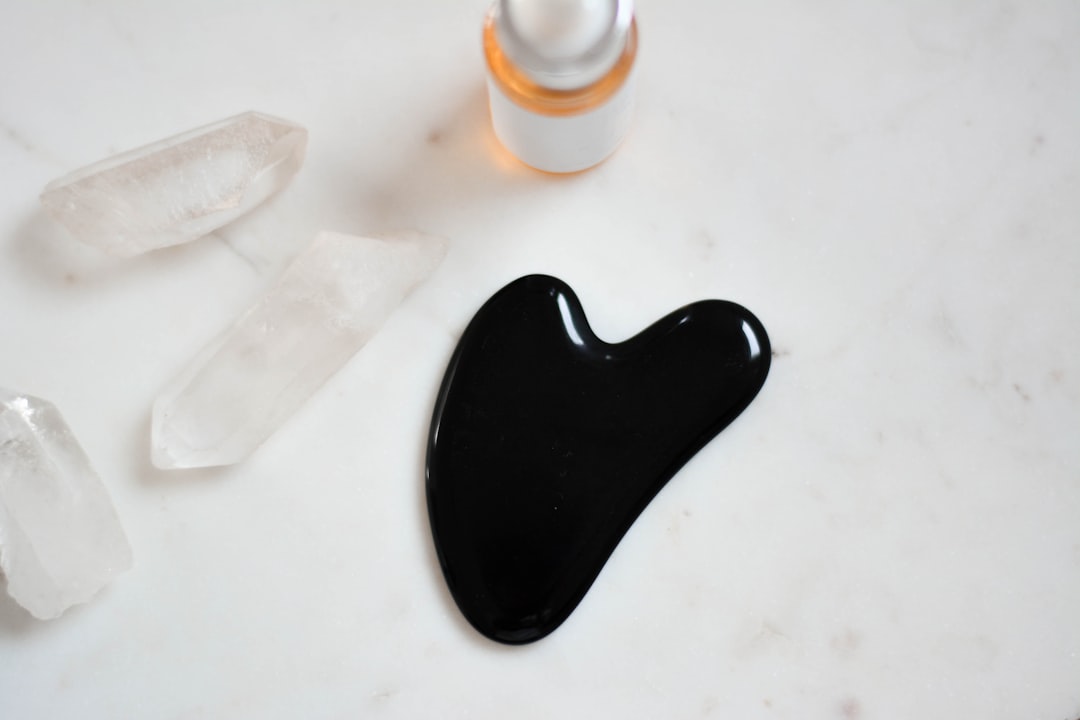Face masks have become an essential part of skincare routines for many people around the world. These masks are designed to be applied to the face and left on for a certain period of time, allowing the ingredients to penetrate the skin and provide various benefits. They come in a variety of forms, including sheet masks, clay masks, gel masks, and cream masks.
The use of face masks can be traced back thousands of years. Ancient civilizations such as the Egyptians and Greeks used natural ingredients like honey, clay, and herbs to create masks that would improve the appearance and health of their skin. Over time, face masks have evolved and become more sophisticated, with the development of new ingredients and technologies.
Face masks play a crucial role in skincare routines because they provide targeted treatments for specific skin concerns. Whether you’re looking to prevent skin issues, hydrate and nourish your skin, combat signs of aging, treat acne and blemishes, improve skin tone and texture, exfoliate and detoxify your skin, protect it from environmental damage, or boost its radiance and glow, there is a face mask out there for you.
Summary
- Face masks are an important part of skincare routines.
- They can prevent skin issues and hydrate and nourish the skin.
- Face masks have anti-aging benefits and can treat acne and blemishes.
- They improve skin tone and texture, exfoliate and detoxify, and protect from environmental damage.
- Regular use of face masks can boost skin radiance and glow for healthy and beautiful skin.
The Role of Face Masks in Preventing Skin Issues
One of the key benefits of using face masks is their ability to prevent skin issues. By applying a face mask regularly, you can help keep your skin healthy and free from common problems such as acne, blackheads, whiteheads, and clogged pores.
Face masks work by deeply cleansing the skin and removing impurities that can lead to breakouts. They also help to regulate oil production, which is important for preventing acne. Additionally, some face masks contain ingredients like salicylic acid or benzoyl peroxide that have anti-inflammatory properties and can help reduce redness and swelling associated with acne.
There are different types of face masks that are specifically formulated to prevent skin issues. Clay masks, for example, are great for oily and acne-prone skin as they help to absorb excess oil and unclog pores. On the other hand, sheet masks infused with ingredients like tea tree oil or witch hazel can help calm and soothe irritated skin.
To get the most out of your face mask and prevent skin issues, it’s important to use them correctly. Start by cleansing your face thoroughly to remove any dirt or makeup. Then, apply the mask evenly to your face, avoiding the eye and lip areas. Leave it on for the recommended amount of time, usually around 10-15 minutes, and then rinse it off with warm water. Follow up with a moisturizer to lock in hydration.
How Face Masks Help to Hydrate and Nourish the Skin
Another important role of face masks in skincare is their ability to hydrate and nourish the skin. Our skin can become dehydrated due to factors such as weather conditions, environmental pollutants, and even our own lifestyle choices. This can lead to dryness, flakiness, and a dull complexion.
Face masks that are specifically formulated for hydration contain ingredients like hyaluronic acid, glycerin, and ceramides that attract and retain moisture in the skin. These masks help to replenish lost hydration and restore the skin’s natural moisture barrier.
Nourishing face masks, on the other hand, are packed with vitamins, antioxidants, and other nutrients that provide essential nourishment to the skin. They can help improve the overall health and appearance of the skin by promoting cell turnover, boosting collagen production, and protecting against free radical damage.
When using a hydrating or nourishing face mask, it’s important to choose one that is suitable for your skin type. For dry or sensitive skin, look for masks that are gentle and contain soothing ingredients like aloe vera or chamomile. For oily or combination skin, opt for lightweight gel masks that won’t clog pores.
To get the best results from your hydrating or nourishing face mask, apply it to clean, dry skin and leave it on for the recommended amount of time. You can also enhance the effects by using a facial steamer or warm towel to open up your pores and allow the ingredients to penetrate deeper into the skin.
The Benefits of Using Face Masks for Anti-Aging
As we age, our skin naturally loses elasticity and firmness, leading to the formation of wrinkles and fine lines. Face masks can be a valuable tool in the fight against aging, as they can help to improve the appearance of wrinkles, tighten sagging skin, and promote a more youthful complexion.
Anti-aging face masks often contain ingredients like retinol, peptides, collagen, and antioxidants that work together to stimulate collagen production, improve skin elasticity, and reduce the appearance of fine lines and wrinkles. These masks can also help to brighten the skin and even out its tone, giving it a more youthful and radiant glow.
There are different types of face masks that are specifically formulated for anti-aging purposes. Sheet masks infused with collagen or hyaluronic acid are great for plumping up the skin and reducing the appearance of fine lines. Cream masks enriched with retinol or peptides can help to improve skin texture and firmness.
To get the most out of your anti-aging face mask, make sure to follow the instructions carefully. Apply it to clean, dry skin and leave it on for the recommended amount of time. Avoid using masks that contain harsh ingredients or exfoliants, as they can irritate the skin and cause more harm than good.
The Role of Face Masks in Treating Acne and Blemishes
Acne is a common skin condition that affects people of all ages. It is caused by a combination of factors, including excess oil production, clogged pores, bacteria, and inflammation. Face masks can be an effective tool in treating acne and blemishes, as they can help to regulate oil production, unclog pores, and reduce inflammation.
Face masks that are specifically formulated for acne-prone skin often contain ingredients like salicylic acid, benzoyl peroxide, or sulfur that have anti-inflammatory and antibacterial properties. These masks can help to reduce redness and swelling associated with acne, as well as kill the bacteria that cause breakouts.
There are different types of face masks that are suitable for treating acne and blemishes. Clay masks are great for absorbing excess oil and unclogging pores, while sheet masks infused with tea tree oil or witch hazel can help to calm and soothe irritated skin.
To effectively treat acne and blemishes with a face mask, it’s important to use it regularly as part of your skincare routine. Apply the mask to clean, dry skin and leave it on for the recommended amount of time. Avoid picking or popping any pimples, as this can lead to scarring and further inflammation.
How Face Masks Help to Improve Skin Tone and Texture
Uneven skin tone and texture are common concerns for many people. Factors such as sun exposure, pollution, hormonal changes, and aging can all contribute to these issues. Face masks can help to improve skin tone and texture by exfoliating dead skin cells, promoting cell turnover, and brightening the complexion.
Exfoliating face masks often contain ingredients like alpha hydroxy acids (AHAs) or beta hydroxy acids (BHAs) that help to remove dead skin cells and unclog pores. These masks can help to smooth out rough patches, refine the skin’s texture, and even out its tone.
Brightening face masks are formulated with ingredients like vitamin C or niacinamide that help to fade dark spots, reduce hyperpigmentation, and promote a more even complexion. These masks can also help to boost radiance and give the skin a healthy glow.
To improve skin tone and texture with a face mask, apply it to clean, dry skin and leave it on for the recommended amount of time. Be careful not to over-exfoliate, as this can irritate the skin and cause redness or sensitivity. Start by using the mask once or twice a week and gradually increase the frequency if needed.
The Benefits of Using Face Masks for Exfoliation and Detoxification
Exfoliation is an important step in any skincare routine as it helps to remove dead skin cells, unclog pores, and promote cell turnover. Face masks can be a great tool for exfoliation, as they often contain ingredients like enzymes or physical exfoliants that help to slough off dead skin cells and reveal a smoother, brighter complexion.
Exfoliating face masks can help to improve the appearance of dull, tired-looking skin by removing the buildup of dead skin cells that can make the complexion appear dull and lackluster. They can also help to reduce the appearance of fine lines and wrinkles, as well as minimize the appearance of pores.
Detoxifying face masks are designed to draw out impurities from the skin, such as dirt, oil, and toxins. These masks often contain ingredients like charcoal or clay that have absorbent properties and can help to purify the skin. They can also help to reduce inflammation and calm irritated skin.
To exfoliate or detoxify your skin with a face mask, apply it to clean, dry skin and leave it on for the recommended amount of time. Gently massage the mask into your skin using circular motions to enhance its exfoliating or detoxifying effects. Rinse it off with warm water and follow up with a moisturizer to replenish hydration.
The Role of Face Masks in Protecting the Skin from Environmental Damage
Our skin is constantly exposed to environmental pollutants, UV rays, and other external factors that can cause damage and accelerate the aging process. Face masks can help to protect the skin from these harmful elements by creating a barrier and providing antioxidant protection.
Face masks that are specifically formulated for environmental protection often contain ingredients like antioxidants, vitamins, and botanical extracts that help to neutralize free radicals and protect against oxidative stress. These masks can also help to strengthen the skin’s natural defense mechanisms and improve its resilience.
There are different types of face masks that are suitable for protecting the skin from environmental damage. Sheet masks infused with antioxidants like green tea or vitamin E are great for providing a protective barrier against pollutants. Cream masks enriched with botanical extracts can help to soothe and calm irritated skin.
To protect your skin from environmental damage with a face mask, apply it to clean, dry skin and leave it on for the recommended amount of time. Make sure to choose a mask that is suitable for your skin type and concerns. Incorporate it into your skincare routine at least once or twice a week for optimal results.
How Face Masks Help to Boost Skin Radiance and Glow
A radiant and glowing complexion is often associated with healthy, youthful-looking skin. Face masks can help to boost skin radiance and glow by providing hydration, exfoliation, and nourishment to the skin.
Hydrating face masks can help to plump up the skin and give it a healthy glow by replenishing lost moisture and improving its overall hydration levels. Exfoliating face masks can help to remove dead skin cells and reveal a brighter complexion. Nourishing face masks can provide essential nutrients to the skin, promoting a more radiant appearance.
There are different types of face masks that are specifically formulated for boosting skin radiance and glow. Sheet masks infused with brightening ingredients like vitamin C or niacinamide can help to fade dark spots and even out the complexion. Cream masks enriched with botanical extracts can help to nourish and revitalize dull, tired-looking skin.
To boost your skin’s radiance and glow with a face mask, apply it to clean, dry skin and leave it on for the recommended amount of time. Make sure to choose a mask that is suitable for your skin type and concerns. Incorporate it into your skincare routine regularly for best results.
The Importance of Regular Use of Face Masks for Healthy and Beautiful Skin.
In conclusion, face masks play a crucial role in skincare routines by providing targeted treatments for specific skin concerns. Whether you’re looking to prevent skin issues, hydrate and nourish your skin, combat signs of aging, treat acne and blemishes, improve skin tone and texture, exfoliate and detoxify your skin, protect it from environmental damage, or boost its radiance and glow, there is a face mask out there for you.
By incorporating face masks into your regular skincare routine, you can help keep your skin healthy, radiant, and beautiful. Remember to choose masks that are suitable for your skin type and concerns, and follow the instructions carefully for best results. With consistent use, you’ll be able to enjoy the many benefits that face masks have to offer and achieve the healthy, glowing complexion you desire.
If you’re interested in debunking skincare myths and learning the real truths about taking care of your skin, you should definitely check out this informative article on 21 Skincare Myths Debunked: The Real Truths You Should Know. It’s a great resource for anyone looking to separate fact from fiction when it comes to skincare. Additionally, if you’re looking to add a potent dose of brightness to your skin, you might want to read about the Babe Vitamin C Ampoules. These ampoules are designed to revitalize your skin and give it a radiant glow. And if you’re interested in overnight skincare hacks that can help revitalize your skin while you sleep, be sure to check out this article on Revitalize Your Skin While You Sleep: Overnight Skincare Hacks. It’s packed with tips and tricks to help you wake up with refreshed and rejuvenated skin.
FAQs
What are face masks?
Face masks are protective coverings that are worn over the nose and mouth to prevent the spread of germs and viruses. They can be made from a variety of materials, including cloth, paper, and plastic.
What are the benefits of using face masks regularly?
Regular use of face masks can help prevent the spread of germs and viruses, including COVID-19. They can also help protect the wearer from inhaling harmful particles in the air, such as dust and pollution.
How do face masks work?
Face masks work by trapping droplets that are released when the wearer talks, coughs, or sneezes. These droplets can contain germs and viruses, which can be spread to others. By wearing a face mask, the droplets are trapped and prevented from spreading.
What types of face masks are available?
There are several types of face masks available, including cloth masks, surgical masks, and N95 respirators. Cloth masks are the most common and can be made from a variety of materials. Surgical masks are disposable and are often used in healthcare settings. N95 respirators are designed to filter out small particles and are used in industrial settings.
How should I wear a face mask?
To wear a face mask properly, it should cover your nose and mouth and fit snugly against your face. You should avoid touching the mask while wearing it and should wash your hands before and after putting it on or taking it off.
Are there any downsides to using face masks?
While there are many benefits to using face masks, there are also some downsides. They can be uncomfortable to wear for long periods of time and can make it difficult to breathe. They can also cause skin irritation and acne. Additionally, some people may have difficulty communicating while wearing a mask.




